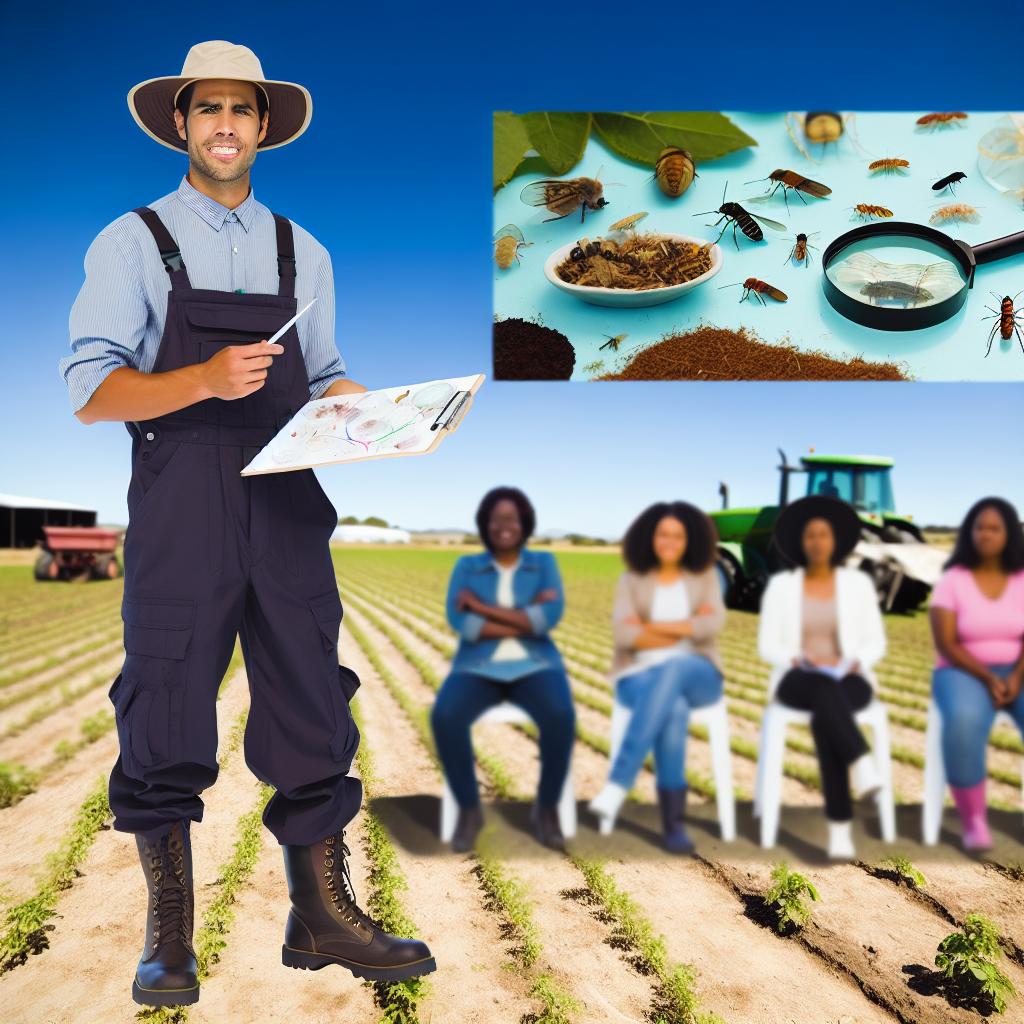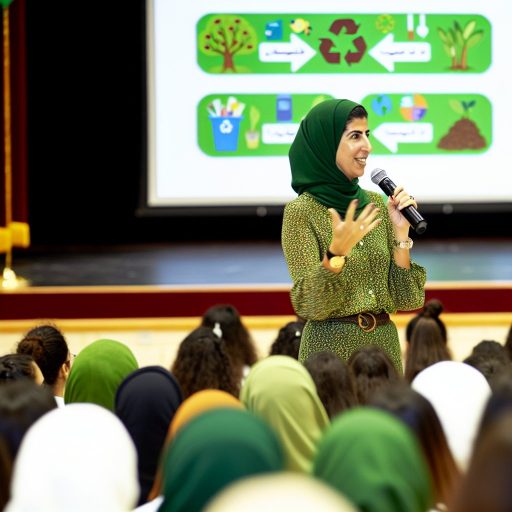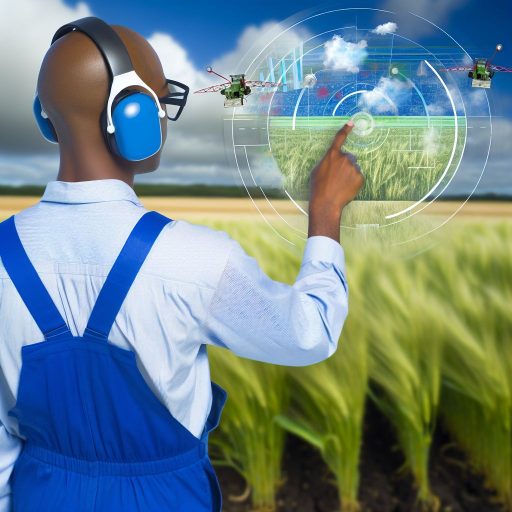Introduction
Entomologists have played a significant role in transforming agricultural practices through their groundbreaking research and discoveries.
Explanation of what entomologists are
Entomologists are scientists who study insects, their behavior, life cycle, ecology, and interactions with other organisms in the environment.
Importance of entomologists in agriculture
Entomologists are crucial in agriculture as they help farmers identify and manage insect pests that can damage crops.
Their research also focuses on beneficial insects that can help control pest populations naturally.
By understanding insect biology and behavior, entomologists develop sustainable pest management strategies that reduce the use of chemical pesticides.
This leads to healthier ecosystems and increased crop yields.
Their work is essential for ensuring food security and promoting environmentally friendly agricultural practices.
Charles Valentine Riley
Background Information: Charles Valentine Riley was a renowned entomologist born in 1843 in England.
He later moved to the United States and became a leading figure in the field of entomology.
Contribution to Biological Control of Pests:
- Riley conducted extensive research on the life cycles of insects and their interactions with plants.
- He was a pioneer in promoting the use of natural enemies, such as parasitoids and predators, to control pest populations.
- Riley emphasized the importance of maintaining a balance in ecosystems to reduce the need for chemical pesticides.
- He published numerous papers and articles advocating for the use of biological control methods in agriculture.
Impact on Agricultural Practices:
- Riley’s work revolutionized agricultural practices by shifting the focus from chemical pesticides to natural pest control methods.
- His research led to a greater understanding of the ecological relationships between pests, crops, and beneficial insects.
- Riley’s advocacy for biological control methods paved the way for sustainable farming practices that are still used today.
- He promoted integrated pest management techniques that help farmers reduce their reliance on synthetic chemicals.
Charles Valentine Riley’s contributions to entomology and agricultural practices have had a lasting impact on the industry.
His emphasis on biological control methods and sustainable farming practices continues to shape the way we approach pest management in agriculture.
Rachel Carson
Rachel Carson was born on May 27, 1907, in Pennsylvania.
She developed a love for nature at a young age, which later influenced her career choice.
Carson pursued her education in biology and eventually earned a Master’s degree in Zoology.
She started her career as a marine biologist, working for the U.S. Fish and Wildlife Service.
Influence on Pesticide Regulation
Carson’s groundbreaking book, “Silent Spring,” published in 1962, was a wake-up call to the dangers of pesticides on the environment and human health.
Her research exposed the harmful effects of DDT and other pesticides, leading to a public outcry and eventually, the banning of DDT in the United States.
Advancement in Integrated Pest Management
Carson’s work laid the foundation for integrated pest management (IPM) practices.
These practices focus on preventing pest infestations using a combination of biological, cultural, and chemical control methods.
IPM is now widely used in agriculture to reduce reliance on chemical pesticides, promote ecological balance, and protect beneficial insects.
Transform Your Career Today
Unlock a personalized career strategy that drives real results. Get tailored advice and a roadmap designed just for you.
Start NowKey Accomplishments
- Rachel Carson’s advocacy led to the creation of the Environmental Protection Agency (EPA) in 1970.
- She was posthumously awarded the Presidential Medal of Freedom for her environmental work.
Legacy
Rachel Carson’s legacy as a pioneering environmentalist and entomologist continues to inspire generations.
She urged society to protect our planet and adopt sustainable farming practices.
Gain More Insights: Agricultural Technician Work Environments
Norman Borlaug: A Pioneer in Agriculture
Norman Borlaug was a renowned American biologist, humanitarian, and Nobel laureate.
He was known for his work in plant breeding and agriculture.
Born on March 25, 1914, in Cresco, Iowa, Borlaug grew up on a farm.
He developed a passion for agriculture at a young age.
Background Information
Borlaug earned a Bachelor of Science in forestry in 1937 from the University of Minnesota.
He obtained a Ph.D. in plant pathology in 1942.
He worked as a wheat breeder at the International Maize and Wheat Improvement Center in Mexico.
There, he developed high-yielding wheat varieties.
Focus on Plant Breeding
Borlaug’s revolutionary work in plant breeding centered on developing new varieties of wheat.
These varieties could withstand disease, pests, and harsh growing conditions.
He used a combination of traditional breeding techniques and scientific methods.
Borlaug’s research focused on improving the genetic diversity of wheat varieties.
This effort aimed to increase productivity and ensure food security.
Impact on Global Agriculture
Borlaug’s contributions to global agriculture were groundbreaking and transformative.
His efforts earned him the title of the “Father of the Green Revolution.”
His high-yielding wheat varieties helped increase food production.
He also played a key role in alleviating hunger and reducing poverty in developing countries.
Transform Your Career Today
Unlock a personalized career strategy that drives real results. Get tailored advice and a roadmap designed just for you.
Start NowBorlaug’s work saved millions of lives by preventing famine.
He promoted sustainable agricultural practices as well.
In 1970, he was awarded the Nobel Peace Prize for his efforts.
Borlaug’s legacy continues to inspire future generations of scientists and agricultural experts.
They address food security challenges worldwide.
Legacy of Norman Borlaug
Overall, Norman Borlaug’s pioneering work in plant breeding revolutionized global food production.
His dedication to improving agricultural practices has left a lasting impact on the world.
Discover More: Agricultural Economists’ Role in Agricultural Policy Reform
Background Information
Mary Jane Rathbun was born in 1860 and grew up with a passion for studying the natural world.
She pursued her interest in biology and entomology, eventually becoming an expert in crustacean and insect taxonomy.
Work in Crustacean and Insect Taxonomy
Rathbun’s work in crustacean and insect taxonomy was groundbreaking.
She meticulously cataloged and classified different species, helping researchers and scientists better understand the complexities of these organisms.
Her detailed observations and descriptions of various species of crustaceans and insects paved the way for further research in these areas.
Rathbun’s expertise in taxonomy was highly respected in the scientific community.
Contribution to Scientific Knowledge
Mary Jane Rathbun’s contribution to scientific knowledge was immense.
Her work not only expanded our understanding of crustaceans and insects but also helped inform agricultural practices.
- Rathbun’s research on insect behaviors and life cycles provided valuable insights for pest control strategies in agriculture.
- Her taxonomy work enabled scientists to identify and classify invasive species, leading to more targeted and effective eradication efforts.
- Rathbun’s discoveries in the field of entomology influenced agricultural policies and practices, promoting sustainable farming methods.
Mary Jane Rathbun’s dedication to the study of crustaceans and insects had a lasting impact on agriculture and scientific research.
Her work continues to inspire and inform entomologists and biologists to this day.
Find Out More: The Impact of Climate Change on Food Science

Francis Walker
Francis Walker was a renowned entomologist who made significant contributions to agricultural practices through his studies on beneficial insects.
Transform Your Career Today
Unlock a personalized career strategy that drives real results. Get tailored advice and a roadmap designed just for you.
Start NowBackground Information
- Walker was born in 1809 in England and later became a curator at the British Museum.
- He was appointed as an assistant in the zoology department, where he studied insects extensively.
- Walker’s passion for entomology drove him to explore various species, leading to groundbreaking discoveries.
Studies on Beneficial Insects
Francis Walker focused his research on identifying and understanding the role of beneficial insects in agriculture.
- He classified numerous species of parasitic wasps and their effectiveness in controlling crop pests.
- Walker’s in-depth studies highlighted the intricate relationships between insects and their environment.
- His work shed light on the importance of preserving and enhancing the presence of beneficial insects in farming.
Impact on Pest Management Strategies
Walker’s findings revolutionized pest management strategies and influenced agricultural practices globally.
- His research paved the way for integrated pest management (IPM) approaches that emphasized natural pest control methods.
- Farmers began incorporating Walker’s recommendations by utilizing beneficial insects as a sustainable pest management solution.
- IPM strategies reduced the reliance on chemical pesticides, leading to healthier ecosystems and increased crop yields.
See Related Content: How to Become an Agricultural Laborer: Step-by-Step Guide
Gary Hinshaw
Background Information: Gary Hinshaw was born on October 9, 1953, in Boston, Massachusetts.
He obtained a Bachelor’s degree in Entomology from Harvard University and a Ph.D. in Ecology from Cornell University.
Work on Insect Behavior and Ecology:
Hinshaw’s research focused on the behavioral ecology of insects, particularly their interactions within ecosystems.
He studied how insects communicate, mate, and forage for food.
Contributions to Sustainable Agriculture Practices:
- Introduced biological control methods: Hinshaw pioneered the use of natural predators to control pest populations, reducing the need for chemical pesticides.
- Advocated for crop rotation: By studying the behavior of insects in agricultural settings, Hinshaw emphasized the importance of crop rotation to disrupt the life cycles of pests.
- Developed integrated pest management strategies: Hinshaw promoted the use of a holistic approach to pest management that combines biological, cultural, and chemical control methods.
- Collaborated with farmers: Hinshaw worked closely with farmers to implement sustainable agricultural practices based on his research findings.
- Educated the public: Hinshaw was a vocal advocate for sustainable agriculture and regularly gave lectures and workshops to raise awareness about eco-friendly pest management.
Gary Hinshaw’s groundbreaking work on insect behavior and ecology has had a lasting impact on sustainable agriculture practices.
Through his research and advocacy, he has helped farmers around the world adopt environmentally friendly pest control methods that promote healthier ecosystems and increase crop yields.
Significant Contributions of Entomologists
Entomologists have played a crucial role in revolutionizing agricultural practices through their research and innovations.
Impactful Figures in Entomology
Individuals such as Rachel Carson, Norman Borlaug, and Stephen Forbes have significantly impacted the field of entomology.
Advancements in Pest Management
Their work has led to the development of sustainable pest management strategies and increased crop yields worldwide.
Need for Ongoing Entomological Research
As pests continue to evolve, ongoing research in entomology is essential to find new solutions and improve agricultural sustainability.
Additional Resources
Agricultural and Food Scientists : Occupational Outlook Handbook …
[E-Books for Sale]
The Big Book of 500 High-Paying Jobs in America: Unlock Your Earning Potential
$19.99 • 500 High-Paying Jobs • 330 pages
Explore 500 high-paying jobs in America and learn how to boost your career, earn more, and achieve success!
See All 500 High-Paying Jobs of this E-Book
1001 Professions Without a Degree: High-Paying American Jobs You Can Start Now
$19.99 • 1001 Professions Without a Degree • 174 pages
Discover 1001 high-paying jobs without a degree! Unlock career tips, skills, and success strategies for just $19.99!




